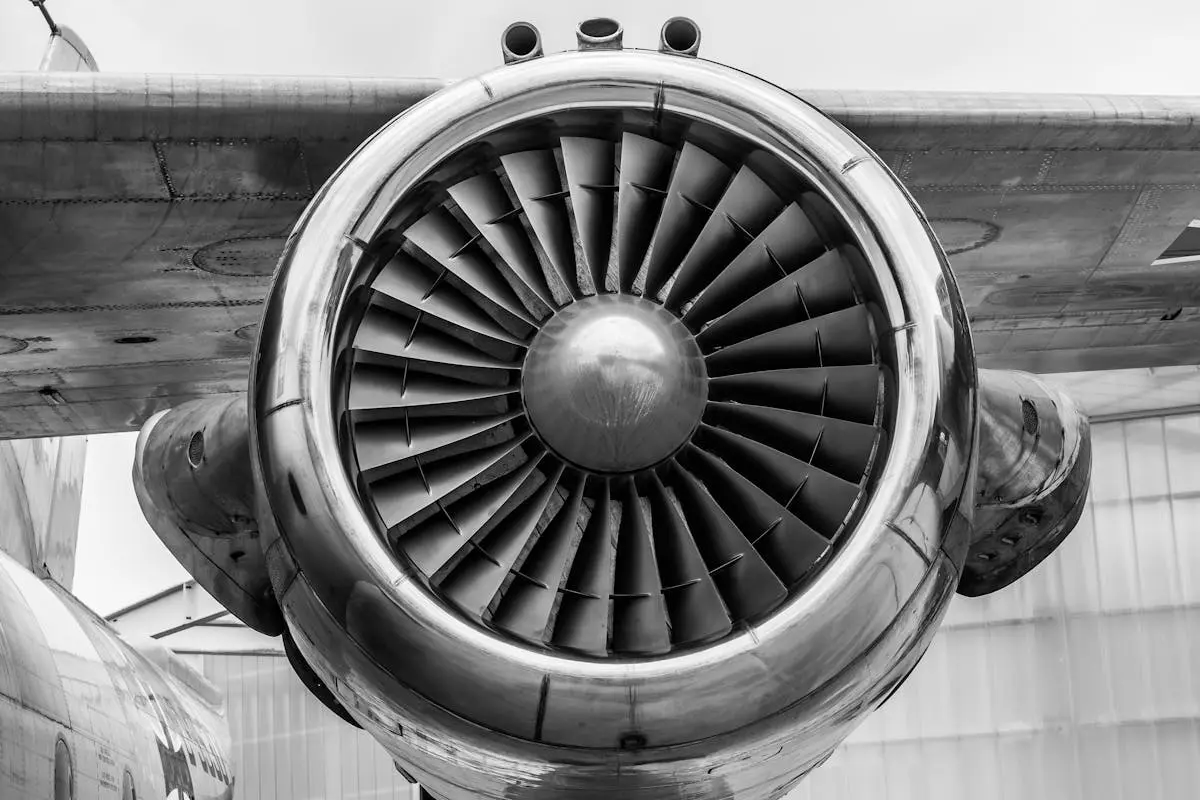The Essential Guide to Quality Control Tools for Aerospace Manufacturing
2nd Jul 2024
In the intricate world of aerospace manufacturing, the precise quality control is paramount. From ensuring the safety of aerospace vehicles to maintaining the highest standards of production, implementing the right quality control tools is crucial. Join us on an exploration of the cutting-edge tools shaping the industry's future.
Understanding the Importance of Quality Control in Aerospace
Quality control in the aerospace industry plays a critical role in ensuring the safety and reliability of aircraft components. With the complex nature of aerospace manufacturing, even the smallest defect can have serious consequences. By employing rigorous quality control measures, companies can detect anomalies early in the production process and prevent costly errors down the line.
Moreover, in an industry where precision is non-negotiable, quality control tools serve as the backbone of operational excellence. These tools not only detect defects but also optimize production processes, leading to increased efficiency and cost savings. From materials testing to dimensional inspections, each step in the aerospace manufacturing journey relies on quality control to deliver top-notch results.
By focusing on quality control, aerospace companies can build a reputation for reliability and safety, instilling confidence in both regulators and consumers. Implementing stringent quality control procedures is not just a choice but a necessity in an industry where excellence is the standard.
Types of Cutting-Edge Quality Control Tools Used in Aerospace Manufacturing
One of the most revolutionary advancements in quality control tools for aerospace manufacturing is the use of non-destructive testing (NDT) techniques. These innovative methods allow for the inspection of materials and components without causing damage, ensuring product integrity while maintaining structural strength.
Additionally, the adoption of 3D scanning technology has transformed quality control processes in aerospace. By creating detailed digital representations of components, manufacturers can identify imperfections with exceptional precision, enhancing the overall quality of aerospace products.
Furthermore, the integration of artificial intelligence (AI) and machine learning algorithms has enabled predictive quality control in aerospace manufacturing. These advanced tools analyze vast amounts of data in real-time, predicting potential defects and optimizing production processes to preemptively address any issues.
In the realm of aerospace manufacturing, the evolution of quality control tools continues to break new ground, pushing the boundaries of innovation and efficiency. By leveraging these cutting-edge technologies, aerospace companies can uphold the highest quality standards and drive advancements in aerospace engineering.
Implementing Quality Control Processes in Aerospace Production
The implementation of quality control processes in aerospace production begins with a comprehensive quality management system (QMS). This system outlines the procedures and protocols for ensuring product quality at every stage of manufacturing, from raw material inspection to final product testing.
Moreover, continuous monitoring and evaluation of manufacturing processes are essential to identify areas for improvement and maintain consistency in product quality. By collecting and analyzing data throughout the production cycle, aerospace companies can make data-driven decisions to enhance efficiency and reduce defects.
Training personnel on quality control practices and the use of advanced tools is also crucial for successful implementation. Ensuring that employees are adequately skilled and informed empowers them to uphold quality standards and contribute to a culture of excellence within the organization.
Ultimately, the successful implementation of quality control processes in aerospace production not only ensures compliance with industry regulations but also fosters a culture of continuous improvement and innovation. By prioritizing quality at every stage of manufacturing, aerospace companies can deliver products that meet the highest standards of excellence.
Advanced Technologies Revolutionizing Quality Control in Aerospace
The aerospace industry is at the forefront of technological innovation, and quality control is no exception. Advanced technologies such as real-time monitoring systems and automated inspection tools are revolutionizing the way aerospace manufacturers ensure product quality and safety.
Real-time monitoring systems provide instant feedback on production processes, allowing for immediate adjustments to optimize product quality. By detecting issues in real-time, manufacturers can prevent defects and maintain high levels of efficiency throughout the manufacturing cycle.
Automation has also played a significant role in revolutionizing quality control in aerospace. Automated inspection tools, powered by AI and machine learning, can perform intricate inspections with unmatched speed and accuracy, enhancing the overall quality assurance process.
As aerospace manufacturing continues to evolve, embracing these advanced technologies is essential for staying competitive in the global market. By investing in cutting-edge quality control tools, aerospace companies can drive innovation, improve efficiency, and deliver products that meet the highest quality standards.
Embracing Innovation in Quality Control
As we wrap up our journey through quality control tools in aerospace manufacturing, it becomes evident that embracing innovation and technology is the key to staying ahead in this competitive field. The evolution of quality control processes continues to revolutionize the industry, ensuring efficiency, accuracy, and safety. By integrating these advanced tools seamlessly into manufacturing processes, aerospace companies can uphold the highest quality standards and propel future advancements in aerospace technology.

